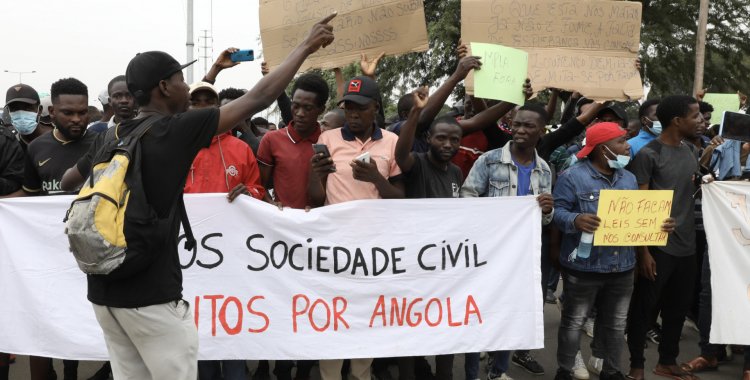The proposal for a legal diploma, an initiative of the parliamentary group of the National Union for the Total Independence of Angola (UNITA) approved in general last May, began to be discussed by the specialized commissions.
At the start of the work, parliamentarians discussed only the preamble and the first article of this legal instrument, which were approved, with amendments, with 58 votes in favor and no against or abstention.
The amendments, proposed by the deputies, focused, above all, on the need to improve the preamble and change the scope of application of the law with the introduction of a new article that has to do with the object of the initiative.
According to UNITA, the new law aims to establish the rules and procedures that guarantee freedom of assembly and demonstration, peaceful and without weapons, in public places.
The bill aims to replace the law that currently regulates the exercise of the right to assemble and demonstrate, approved on May 11, 1991, as it is "partially in supervening unconstitutionality".
"It is imperative that authorization from any authority is not necessary for the exercise of those freedoms, and consequently the use of the word authorization cannot be used either in law or in correspondence between authorities and citizens, based on legal command", reads in the rationale report.
UNITA recalls that freedom of assembly and demonstration is enshrined in article 47 of the Constitution of the Republic of Angola (CRA), noting that only "meetings and demonstrations in public places" need prior communication to the competent authority.
"As the aforementioned prior notice is not necessarily a constitutive element of freedom of assembly and demonstration, the law is naturally justified in establishing clear rules and procedures", he stresses.
Disciplining behavior, namely, setting limits, preventing abuse and protecting the rights related to the exercise of freedoms and demonstration are among the purposes of establishing "clear rules and procedures".
The component of communication and/or authorization of demonstrations has been one of the factors that oppose, often in Angola, promoters of demonstrations and administrative authorities, a fact that often contributes to the repression of demonstrations.
For the deputy of the Popular Movement for the Liberation of Angola (MPLA), António Paulo, the exercise of this act of citizenship must take place "without being subject to authorization, but whenever it is in public places there must be prior communication".
The scope of the law's application was highlighted by MPLA MP Esteves Hilário, considering that the diploma must establish clear assumptions whether the exercise of this right is restricted only to natural or also collective entities.
Agostinho Mardanez Calunga, MP from UNITA, highlighted in his speech the need to broaden the scope of the bill fundamentally for the "clear definition of types of prohibited weapons" (firearms, bladed weapons and blunt objects) in the exercise of this right.
And at the end of the work, UNITA deputy Mihaela Webba, proponent of the law, highlighted the positive exercise that resulted from today's discussion, in which "with proposals, concerns and opinions, a platform of understanding was reached".
"And from that point of view, we think it was an important exercise because we managed to reach a platform of understanding and we hope that, if this continues, an effectively democratic law will emerge and serve the interests of Angolans", said the deputy to journalists.
The law, which brings together 20 articles, whose discussion in the specialty continues on Wednesday, "is also necessary to revoke the current law of 1991, which suffers from supervening unconstitutionality and does not adapt to the evolution of the constitutional precepts enshrined in the CRA of 2010 ".







